Do you have a home theatre system? If so, do you use a power manager to protect your equipment?
When it comes to setting up a home theatre, there are many things you need to consider. One of the most important decisions is whether or not to buy a power manager.
A power manager is a device that helps protect your electronics from power surges and voltage spikes. It is a good idea to use one with your home theatre system, especially if you have expensive equipment. However, before getting one, you might have a number of questions on your mind.
What does a power manager do? Is a power manager really required for a home theatre system? Will it make any difference in sound quality? Is there any disadvantage of using a power manager for a home theatre?
There is a lot of conflicting information regarding home power managers. Some individuals claim they are a must-have for any home theatre or other electronic devices, while others argue that they are a waste of money and a hoax.
In this blog post, we will discuss everything related to home theatre power managers. We will also help you decide if a power manager is really needed for your home theatre setup and what are the best home theatre power manager available.
Best Home Theatre Power Manager
If you are looking for a power manager for your home theatre, here are the best ones you should go for:
- Panamax MR5100 Power Manager
- Furman M-8Dx Merit Series Power Manager
- AudioQuest Niagara 5000 Power Manager
What Is a Home Theatre Power Manager?
A home theatre power manager is a device that helps to protect your electronic equipment from damage caused by power surges and voltage spikes. It does this by either absorbing the excess energy or redirecting it away from your devices.
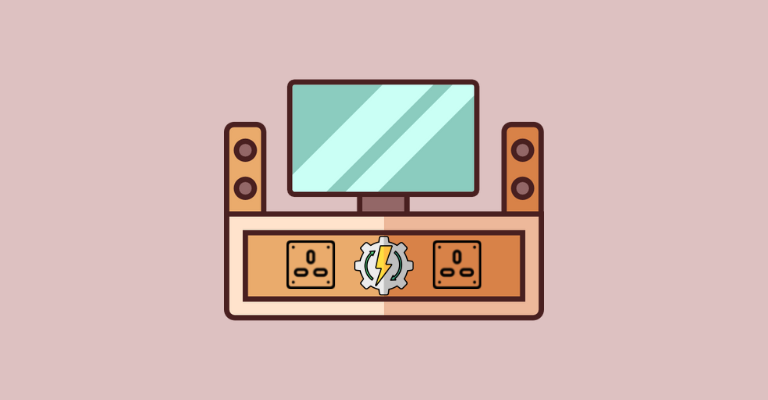
Power managers come in different shapes and sizes. Some are small enough to fit in the palm of your hand, while others are larger and more heavy-duty.
Most power managers have multiple outlets so that you can plug in all of your devices. They also have a variety of features, such as surge protection, battery backup, noise filtration, auto-shutoff, and noise filtering.
The front panel of the power manager usually has a small screen to show the current-voltage and a few other features depending on the model. Most models include a power switch too, which will cut off power to all the outlets.
Why Is a Home Theatre Power Manager Important?
As we mentioned earlier, a home theatre power manager protects your electronic equipment from damage caused by power surges and voltage spikes. These can happen for a variety of reasons, such as lightning strikes, faulty wiring, or even high currents from devices like hair dryers.
Power surges and voltage spikes can cause all sorts of problems for your electronic equipment. They can damage the sensitive components inside, causing them to malfunction or even break. In some cases, power surges and voltage spikes can even cause fires.
This is why it is important to use a power manager with your home theatre system. A good quality power manager will help to protect your equipment from damage and keep it running smoothly.
Apart from that, a home theatre power manager can be beneficial in the following ways:
- A home theater power manager improves the performance of a home theater system by distributing power more effectively, reducing noise, and improving the quality of electricity while also extending the lifespan of the devices. Having your gadgets linked to a power manager reduces the danger of electrical harm and extends their life.
- By keeping all the wires tucked away and not strewn about, it creates a more organized and clutter-free living space. All the cables are hidden and linked together at the rear of the home theatre power manager.
- Some power management systems, in particular ones which use software-controlled devices to decrease energy costs, can clean dirty power flow from AC power as well as eliminate and reduce AC noise. It also manages the electrical distribution of gadgets.
- Another advantage of power conditions is that they eliminate the noise produced by amplifiers. A power manager is a must-have for any home studio. Because amplifiers aren’t aware of what signals they’re amplifying, they may boost the wrong ones. If you hear a whine or static coming from your amplifier, it’s likely that a power conditioner will remove the problem.
How Does a Home Theatre Power Manager Work?
Power Managers for Home Theaters serve as a barrier between your system and the power outlet by reducing voltage fluctuations that can harm the functionality of your gadgets.
A home theatre power manager typically has two main components: a surge protector and a battery backup.
The surge protector is responsible for absorbing any excess energy or redirecting it away from your devices. It does this by using metal oxide varistors (MOVs).
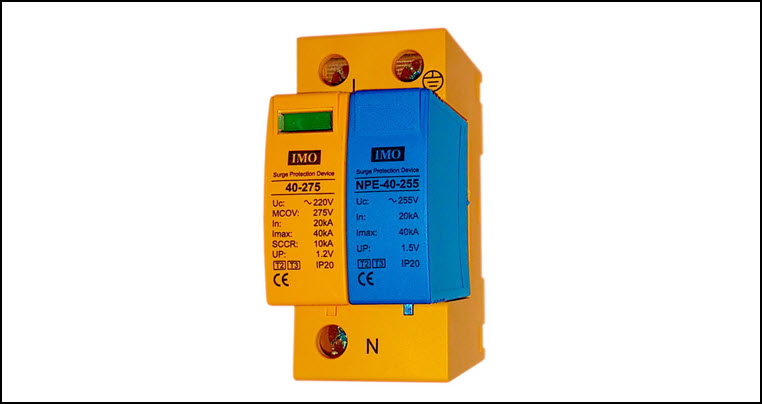
The battery backup, on the other hand, provides power to your devices in the event of a power outage. Most battery backup units can provide enough power to keep your devices running for a few hours.
To use the battery backup, you will need to connect it to a power outlet and then plug your devices into the battery backup unit. When the power goes out, the battery backup unit will take over and provide power to your devices.
Some power managers even come with built-in UPS systems. UPS stands for uninterruptible power supply. This is a type of battery backup that provides power to your devices in the event of a power outage. UPS systems are typically used in businesses and offices.
Difference Between a Power Manager and a Surge Protector
The terms “surge protectors” and “power managers/conditioners” are often used interchangeably, but they’re not the same thing.
A power manager is a device that cleans up the power coming into your home theatre system. It does this by filtering out any noise or interference. Power conditioners also help to regulate the voltage, ensuring that it is at the correct level for your devices.
The power manager employs the Extreme Voltage Shutdown (EVS) technology. The EVS has a mechanical switch, and it physically disconnects your equipment when a high-voltage condition arises.
Surge protectors, on the other hand, are designed to protect your devices from power surges and voltage spikes. They do not condition the power or clean up the signal.
Surge protectors typically include MOV (Metal Oxide Varistor) or gas discharge arrestors. Using these components, Surge protectors may redirect excess energy from your equipment to the grounding wires. The disadvantage of surge protectors is that your equipment remains connected to the circuit.
Does a Power Manager Affect Audio Quality?
A power manager can have a positive or negative effect on your audio quality. The main reason for this is that power managers condition the power coming into your home theatre system.
This can help to reduce interference and noise in the signal, which can improve the sound quality of your system. If your power line is noisy, a power manager will almost certainly enhance the audio quality. However, if the power manager is not properly designed, it can actually introduce noise into the signal.
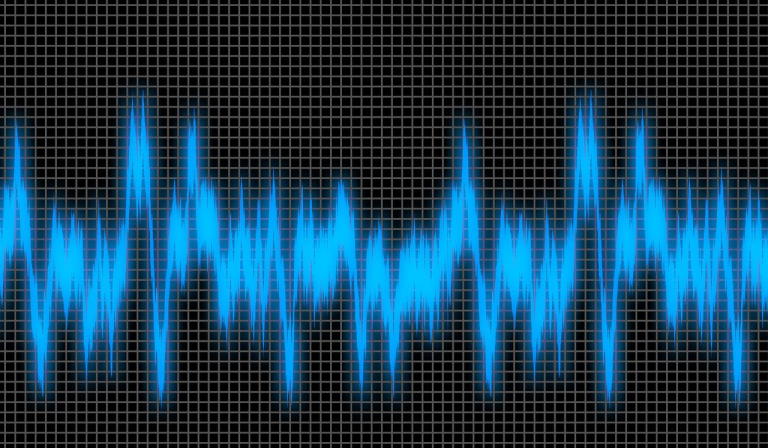
It is important to make sure that you buy a power manager from a reputed brand. This will help to ensure that you are getting a quality product that will not damage your audio system.
That said if you just want to improve the sound quality of your home theatre then investing in an expensive power manager is not an ideal solution.
Do I Need a Power Manager for My Home Theater System?
The answer to this question depends on your specific needs.
Power outages and spikes are possible causes of equipment failure. A power manager will let you avoid having your equipment destroyed by these unexpected power surges. So, considering the safeguard they provide to our expensive home theatres, the home theatre power managers are worth every penny spent on them.
However, if you live in an area with a stable power grid and rarely experience power outages, then you may not need a power manager.
It is also important to consider the type of equipment you are using. If you are using high-end audio equipment, then a power manager will be beneficial. However, if you are using lower-end equipment, then a power manager may not make a significant difference.
Power managers can be expensive. If you are on a budget, then you may want to consider other options.
One option is to use a surge protector. Surge protectors will protect your equipment from power surges and voltage spikes. They do not condition the power or clean up the signal, but they are much cheaper than power managers.
If battery backup is your concern, you can get UPS. They can provide power to your devices in the event of a power outage. They are not as expensive as power managers, and they can be used for other purposes as well.
Ultimately, the decision of whether or not to buy a power manager depends on your specific needs and budget.
What to Look for in a Home Theatre Power Manager?
When you are looking for a power manager for your home theatre, there are several things you need to keep in mind.
- First, you need to make sure that the power manager can handle the wattage of your home theatre. If it is not powerful enough, it will not be able to provide adequate protection for your equipment.
- Second, you need to make sure that the power manager has enough outlets. If you have a lot of equipment, you will need a power manager with multiple outlets.
- Next, you need to make sure that the power manager has surge protection. This will protect your equipment from power surges and voltage spikes.
- Another thing to keep in mind is the power manager size. If you have a lot of equipment, you will need a power manager that is big enough to accommodate all of your equipment.
- Finally, you need to make sure that the power manager is from a reputed brand. This will help to ensure that you are getting a quality product.
Best Home Theatre Power Manager
Now that you know what to look for in a home theatre power manager, it is time to choose the best one for your needs. There are a lot of different power managers on the market, so it can be difficult to choose the right one. To help you make your decision, we have compiled a list of the best home theatre power managers. Each power manager on our list has been carefully chosen based on its features, wattage, and price.
So, whether you are looking for a budget-friendly option or the most powerful one on the market, we have you covered.
Panamax MR5100 Power Manager
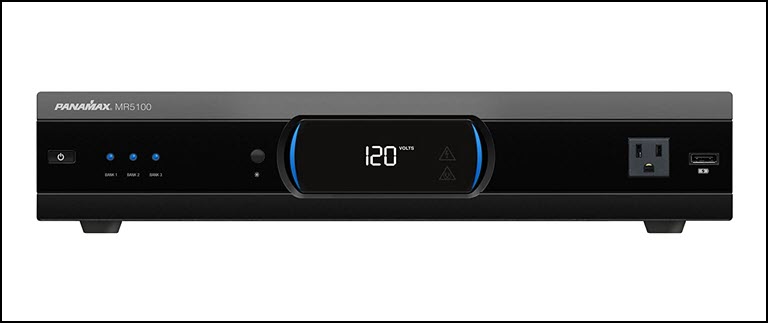
The Panamax MR5300 power manager is one of the most popular options on the market. It has a lot of features that make it a great choice for your home theatre. It has 11 outlets, which is enough to accommodate all of your home theatre equipment.
Apart from that, it has surge protection and EMI/RFI filtering. This will protect your equipment from power surges and interference. It has a max capacity of 2300 watts, which is enough to handle most home theatres.
And what’s more? It is from a reputed brand, so you can be sure that you are getting a quality product. Finally, it is also very affordable, making it a great choice for those on a budget.

Furman M-8Dx Merit Series Power Manager
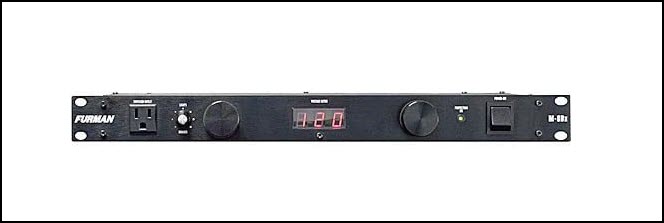
The Furman M- Series power manager is another great option for your home theatre. It has a lot of features that make it a great choice for your needs. It has 9 outlets, which are enough to accommodate all of your equipment.
It features a linear filtration that eliminates AC line noise, dirt, and pollutants, resulting in improved audio and visual quality/clarity. LiFT technology is also utilized.
The Power Conditioner has a green power light as well as an electrical power switch. When the device breaker is threatened by something, the red light illuminates and warns of an unsafe voltage condition.
This power manager also has a max capacity of 1800 watts, which is enough to handle most home theatres. It comes with a three-year warranty, so you can be sure that it is a quality product.

AudioQuest Niagara 5000 Power Manager
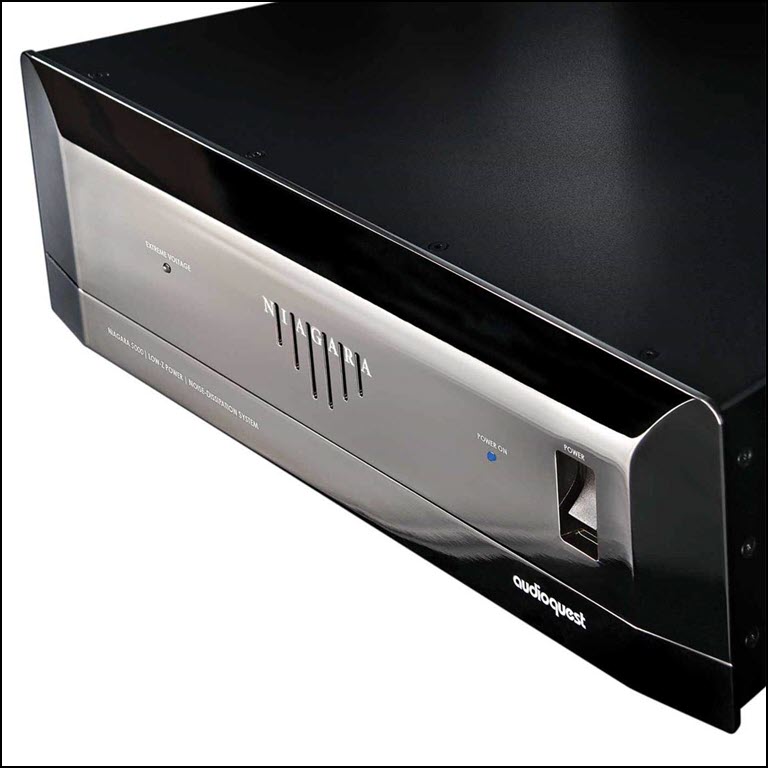
The Niagara 5000 power manager is a great choice for those who are looking for a powerful and feature-rich option. It has 14 outlets, which is enough to accommodate all of your equipment.
It features Active Voltage Monitoring (AVM), which constantly monitors the incoming voltage and protects against brownouts and overvoltages. It also features Automatic Voltage Regulation (AVR), which regulates low voltages and stabilizes high voltages.
It is excellent at reducing power line noise. It was one of the few power conditioners that measured lower than 30 on power line noise meters.
The rear panel offers four high-current outlets as well as eight ultra-linear ones, each of which is isolated from the others. It also has built-in surge suppression, which was tested with 6000V/3000A surges.
This power manager also has a max capacity of 5000 watts, which is enough to handle even the most demanding home theatres. It comes with a five-year warranty, so you can be sure that it is a quality product.

What Are the Alternative Ways to Eliminate Noise in Home Theatre?
If you are facing unnecessary noise in your home theatre, you don’t necessarily need to get a power manager.
There are a few alternative ways that you can eliminate noise in your home theatre.
Make Sure Outlets Are Properly Grounded
One of the main causes of noise in home theatres is improperly grounded outlets. If your outlets are not properly grounded, they can introduce a lot of noise into your system.
To fix this, you can use a grounding stake or rod. You can also use an AC line conditioner with built-in grounding.
To determine if a socket is grounded, use either a multimeter or a receptacle tester. A receptacle tester is simpler for use since it simply connects to the socket and displays readings as well as light signals.
Avoid FM Radio Wave Interference
You may not be aware that power lines can capture FM radio waves. Those transmissions are then carried into your home. So, unknowingly, you might be receiving radio signals via your electricity without even realizing it. These FM radio signals can create a lot of noise in the audio equipment powered by electricity.
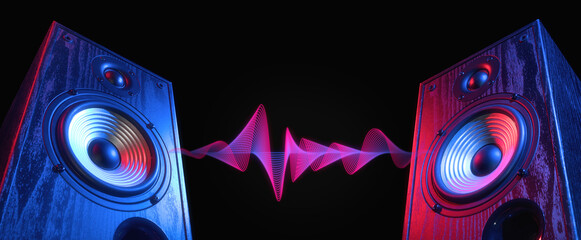
To fix this, you can use an AC line filter. An AC line filter is a device that blocks out FM radio frequencies and other types of electromagnetic interference (EMI).
You can also try using ferrite beads. Ferrite beads are small devices that attach to the power cord and help to reduce EMI.
Connect Your Home Theatre to the Same Circuit
If you have a lot of devices plugged into different circuits, that can also introduce noise into your system. To fix this, you should connect your home theatre to the same circuit as your TV.
This will ensure that all of the devices are on the same ground and will reduce the chance of interference.
Frequently Asked Questions

Do Home Theater Power Managers Reduce Noise?
Yes, home theater power managers can help to reduce noise in your system. By eliminating power line noise, they can improve the sound quality of your system.
Is a power manager the same as a surge protector?
No, a power manager is not the same as a surge protector. A power manager has many other applications other than protection against power surges, while a surge protector only protects against power surges.
Does a Power Manager Affect Audio Quality?
No, a power manager does not affect audio quality. In fact, it can actually improve the sound quality of your system by eliminating power line noise.
Summing Up
A power manager is a great way to protect your home theatre from power surges and brownouts. It can also help to reduce power line noise. In this article, we have discussed everything related to home theatre power managers such as:
- What Home Theatre Power Managers are?
- The Importance of Home Theatre Power Managers
- Difference Between a Power Manager and a Surge Protector
- Is a Home Theatre Power Manager Really Required?
- Best Home Theatre Power Managers in the Market
- Alternative Ways to Reduce Noise in Home Theatre
Now that you know everything about home theatre power managers, you can decide if you need one for your home theatre. If you do, we hope that our list of the best home theatre power managers will help you choose the right one for your needs.


Joan
My home theatre had really annoying noise. Gotta get my outlet checked